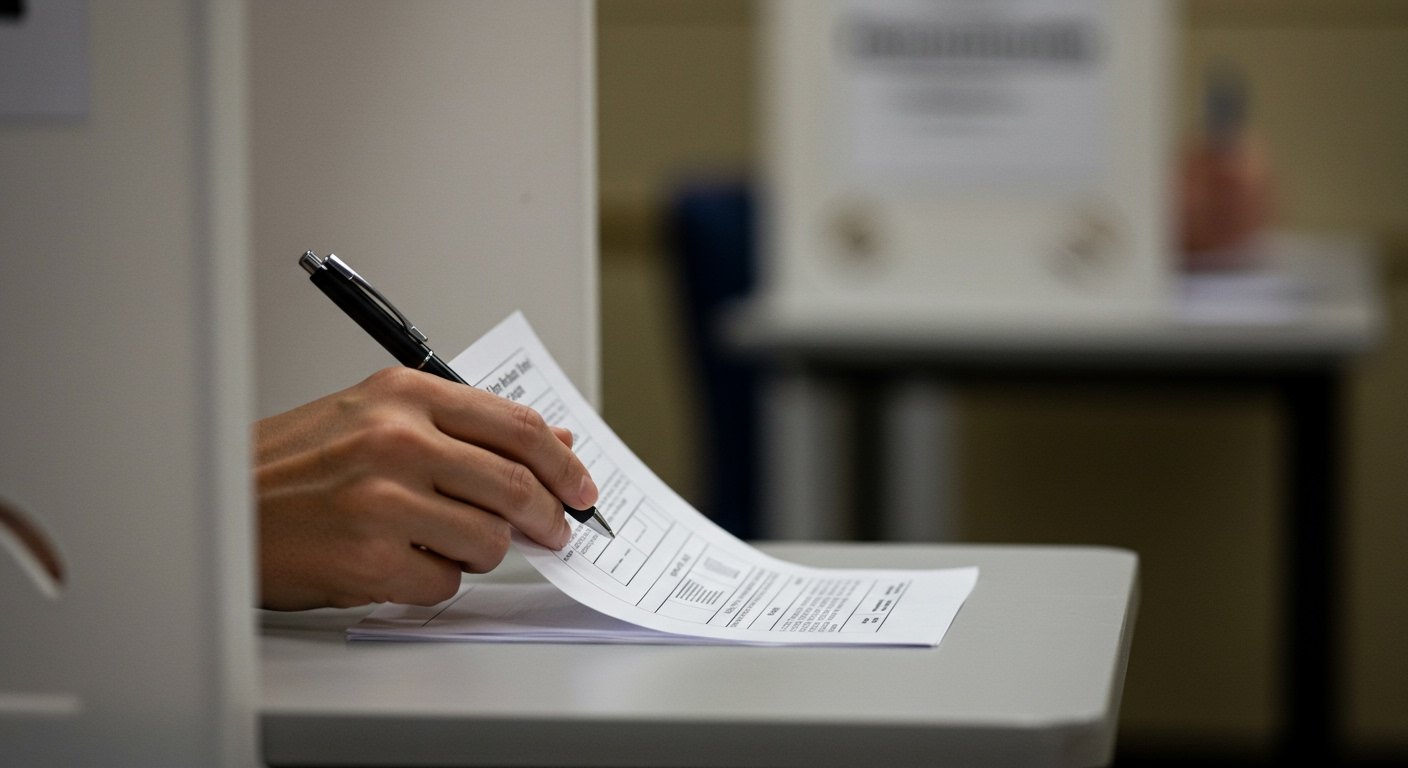Austin, Texas – Texans will head to the polls on November 4, 2025, to consider a significant array of proposed changes to the state’s foundational document. A total of 17 proposed amendments to the Texas Constitution have been officially set for the ballot, covering a wide spectrum of issues poised to impact the daily lives of residents, from property taxes and education funding to criminal justice and healthcare initiatives.
Texas Secretary of State Jane Nelson, based in Flower Mound, formally announced the ballot order for these propositions on Wednesday, June 26, 2025. The sequence in which the amendments will appear before voters was determined through a mandated random drawing, a process designed to ensure fairness in placement.
The Legislative Path to the Ballot
Each of the 17 measures represents a proposal that successfully navigated the legislative process, securing the necessary two-thirds majority vote in both the Texas House of Representatives and the Texas Senate during the recent legislative session. This supermajority requirement underscores the significant consensus needed within the state legislature before a constitutional amendment can be presented to the voters for final approval.
The propositions tackle diverse policy areas, reflecting the priorities and concerns debated by lawmakers. Key themes emerging from the slate of amendments include significant changes related to property taxes, enhancements to education funding mechanisms, adjustments to the state’s bail reform laws, and clarifications regarding parental rights in the education of their children.
Understanding the Key Propositions
Among the most prominent proposals are several that have drawn particular attention:
* Proposition 1: This measure proposes the creation of dedicated funds specifically for the support and development of Texas State Technical Colleges (TSTC). Proponents argue this is essential for bolstering workforce development and technical education across the state.
* Proposition 2: Aimed at providing long-term economic stability, Proposition 2 seeks to enact a state-level ban on capital gains taxes. This would constitutionally prohibit the state government from imposing a tax on the profit realized from the sale of non-inventory assets.
* Proposition 3: Addressing public safety concerns, this proposition would allow for the denial of bail in certain felony cases. It targets specific categories of offenses, giving judges greater discretion in determining eligibility for pretrial release.
* Proposition 4: This measure focuses on the state’s critical water infrastructure by proposing the dedication of sales tax revenue to the Texas Water Fund. This move aims to provide a stable and substantial funding source for crucial water projects across Texas.
* Proposition 5: In a move aimed at supporting the agricultural sector, Proposition 5 would create a specific property tax exemption for animal feed. This proposal seeks to alleviate the tax burden on farmers and ranchers.
* Proposition 6: Echoing the theme of economic activity, Proposition 6 proposes prohibiting the state from imposing any new occupation taxes on securities transactions. This is intended to prevent new taxes on the buying and selling of stocks and other securities.
* Proposition 7: This proposition seeks to provide relief to military families by offering a significant property tax exemption for surviving spouses of veterans who were killed in action or died as a result of a service-related injury.
* Proposition 8: Often referred to as prohibiting state-level “death taxes,” Proposition 8 aims to constitutionally ban estate, inheritance, and gift taxes imposed by the state of Texas. This builds on existing state law by enshrining the prohibition in the constitution.
Other Significant Amendments
Beyond these eight, the remaining nine propositions cover an equally important range of issues:
Several propositions address further aspects of property tax exemptions, modifying or expanding eligibility for certain groups or types of property. These measures continue the legislative trend of using the state constitution to provide direct property tax relief to Texans.
Another proposed amendment would expand the authority of the State Commission on Judicial Conduct. This body is responsible for investigating complaints of judicial misconduct, and the amendment seeks to enhance its ability to oversee the state’s judiciary.
A key measure related to education funding is the proposal to significantly increase the school district homestead exemption from $100,000 to $140,000. If approved, this would directly lower the taxable value of primary residences for school property taxes, providing a substantial tax reduction for homeowners.
Healthcare and research are also represented, with a proposition calling for the establishment of the Dementia Prevention and Research Institute of Texas. This initiative would be supported by a substantial $3 billion allocation, signaling a major state investment in combating neurodegenerative diseases.
A proposition aimed at clarifying educational governance would constitutionally affirm parents as the primary decision-makers regarding their children’s education. This measure reflects ongoing debates about parental rights and school curriculum.
Finally, one amendment seeks to constitutionally clarify a fundamental aspect of suffrage in the state, specifically affirming that a voter in Texas must be a U.S. citizen. While this is already a requirement under state and federal law, placing it directly in the Texas Constitution is intended to eliminate any ambiguity.
The Stakes for Texas Voters
The upcoming November 4 vote presents Texans with the opportunity to directly shape the fundamental laws governing their state. Each proposition, if approved by a simple majority of voters, will become a permanent part of the Texas Constitution.
The breadth and depth of the proposed changes mean that the outcome of this election will have far-reaching consequences, influencing everything from the state’s fiscal policies and tax structure to its approach to criminal justice, education, and healthcare.
Interest groups, political organizations, and individual citizens are expected to engage in robust campaigns in the coming months to advocate for or against specific propositions. Understanding the details of each measure is crucial for voters heading to the polls.
As the state moves towards the November election, voters are encouraged to review the official language of each proposed amendment and consider the potential impacts before casting their ballots on this critical set of constitutional questions.






